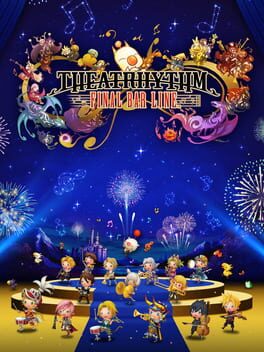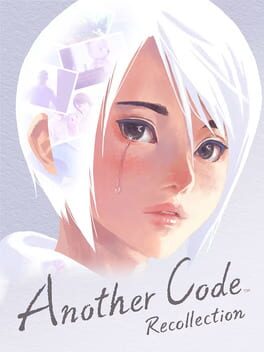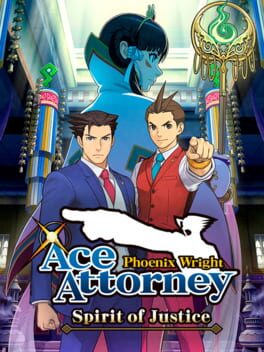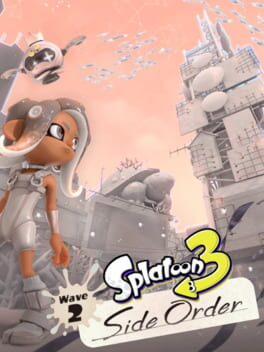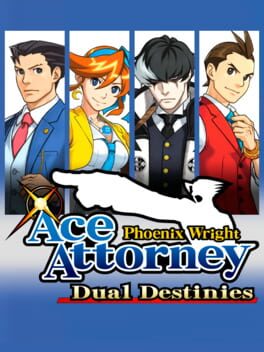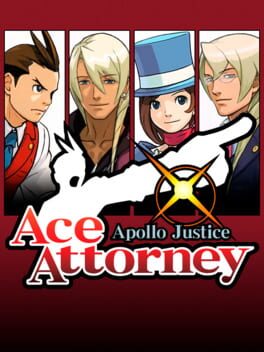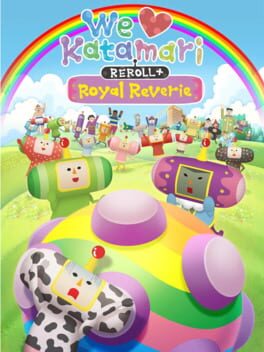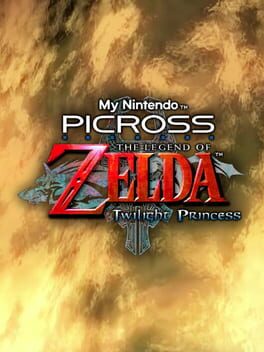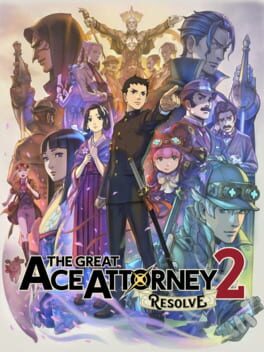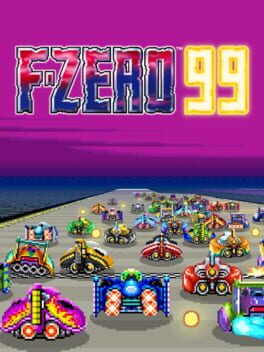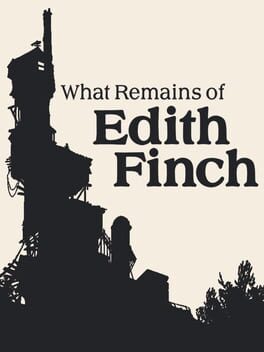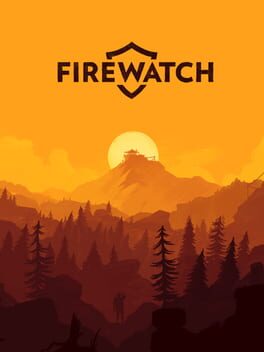My jumble of thoughts while playing this game:
Art style is hideous but mechanics are good
Advent Children has the shittiest soundtrack ever
Collapsed Expressway from FF7Remake is amazing
Where are Cait Sith and Kimahri!!!!!!
The early FF14 songs are boring and generic but they get way more interesting as you go along
Octopath 2 DLC when?
Art style is hideous but mechanics are good
Advent Children has the shittiest soundtrack ever
Collapsed Expressway from FF7Remake is amazing
Where are Cait Sith and Kimahri!!!!!!
The early FF14 songs are boring and generic but they get way more interesting as you go along
Octopath 2 DLC when?
2024
I think it's funny that 99% of the reviews of this game are either praising it because the flow captured them or criticizing it because the flow didn't capture them. Well it captured me! I think some jokers and builds are not created equal, but the developer said he has some updates planned so I'm excited to see where the game goes from here!
The UI scaling is genuinely horrible though. I had to bust out my glasses to play this on the TV. MAKE THE TEXT BIGGER PLEASEEEE
The UI scaling is genuinely horrible though. I had to bust out my glasses to play this on the TV. MAKE THE TEXT BIGGER PLEASEEEE
1997
An ambitious sci-fi epic, through and through.
Final Fantasy VII in the cultural zeitgeist of 2024 is a very different beast compared to Final Fantasy VII, released for the PlayStation in 1997. My circumstances revolving my first playthrough definitely contribute to my lukewarm enjoyment, but I don't see that as a bad thing. I played Remake part 1 first, and I found that game to be an interesting yet underwhelming beast filled to the brim with Triple A-isms and newcomer-unfriendly fanservice.
I've also come to learn which elements I like and don't like in my JRPGs. I adore Final Fantasy X, and its on-rails, personal, and deeply political story. I wasn't as in love with the open-ended, minigame-filled format of Final Fantasy X-2.
Back to FFVII; it's clearly making a pivotal transition between the Dungeons & Dragons inspired JRPGs of the past, and the cinematic and linear film-inspired JRPGs of the future. This crossroads feels awkward at times, but also a little endearing. The story is motivated by player exploration - after you finish business in one town, you have to explore your way to the next one in the overworld. The party characters all have distinct, pre-written personalities, yet you can still name them anything you want. It's a true blend between tabletop and film, and I wish it veered a bit more towards the latter.
It reminds me of the days when I booted up the original Dragon Quest on my first iPhone. You leave the first town, and the rest of the story is yours to create. Except FFVII has its own story already. Character dynamics already exist. What more are you supposed to leave to the imagination? Nowadays, our RPGs are much more aware of the lane they fall into. You have your "everyone is bisexual, go have fun" Baldur's Gate-type tabletop games, and your more linear and tailored story experiences.
I unfortunately was not attached at all to the battle system, but I think this may be a product of my experiences playing FF7Remake first, along with the fact that the Switch release gave cheats. I like the materia system, but couldn't be helped to grind every single party member's skills and limit breaks, which was even more cumbersome than switching party members in FFX.
The party members were lovely, but I can't help but think their depth was stretched thin. None of them are irrelevant, far from it, but the sheer number of them especially Yuffie and Vincent could feel overwhelming and underdeveloped. FFVII tries to (and mostly successfully!) balance the serious with the silly, the sci-fi with the fantasy, and the psychological with the sentimental. It's truly the game of all time, and I'm not surprised it was the candidate to receive so many spinoffs.
With all that said, the crime of being too ambitious is hardly a crime at all in my books. What we're left with is a narrative that's not afraid to make direct critiques of capitalism, combined with some of the best writing a JRPG protagonist has ever been graced with.
Final Fantasy 7 deserves the impact it created. It's a delicate balancing act bridging past and future...and the future is bright.
Final Fantasy VII in the cultural zeitgeist of 2024 is a very different beast compared to Final Fantasy VII, released for the PlayStation in 1997. My circumstances revolving my first playthrough definitely contribute to my lukewarm enjoyment, but I don't see that as a bad thing. I played Remake part 1 first, and I found that game to be an interesting yet underwhelming beast filled to the brim with Triple A-isms and newcomer-unfriendly fanservice.
I've also come to learn which elements I like and don't like in my JRPGs. I adore Final Fantasy X, and its on-rails, personal, and deeply political story. I wasn't as in love with the open-ended, minigame-filled format of Final Fantasy X-2.
Back to FFVII; it's clearly making a pivotal transition between the Dungeons & Dragons inspired JRPGs of the past, and the cinematic and linear film-inspired JRPGs of the future. This crossroads feels awkward at times, but also a little endearing. The story is motivated by player exploration - after you finish business in one town, you have to explore your way to the next one in the overworld. The party characters all have distinct, pre-written personalities, yet you can still name them anything you want. It's a true blend between tabletop and film, and I wish it veered a bit more towards the latter.
It reminds me of the days when I booted up the original Dragon Quest on my first iPhone. You leave the first town, and the rest of the story is yours to create. Except FFVII has its own story already. Character dynamics already exist. What more are you supposed to leave to the imagination? Nowadays, our RPGs are much more aware of the lane they fall into. You have your "everyone is bisexual, go have fun" Baldur's Gate-type tabletop games, and your more linear and tailored story experiences.
I unfortunately was not attached at all to the battle system, but I think this may be a product of my experiences playing FF7Remake first, along with the fact that the Switch release gave cheats. I like the materia system, but couldn't be helped to grind every single party member's skills and limit breaks, which was even more cumbersome than switching party members in FFX.
The party members were lovely, but I can't help but think their depth was stretched thin. None of them are irrelevant, far from it, but the sheer number of them especially Yuffie and Vincent could feel overwhelming and underdeveloped. FFVII tries to (and mostly successfully!) balance the serious with the silly, the sci-fi with the fantasy, and the psychological with the sentimental. It's truly the game of all time, and I'm not surprised it was the candidate to receive so many spinoffs.
With all that said, the crime of being too ambitious is hardly a crime at all in my books. What we're left with is a narrative that's not afraid to make direct critiques of capitalism, combined with some of the best writing a JRPG protagonist has ever been graced with.
Final Fantasy 7 deserves the impact it created. It's a delicate balancing act bridging past and future...and the future is bright.
This review contains spoilers
I finished the entire first game and the first two chapters of the second; I just had to put it down.
We deserve much better video game dialogue in the year 2024. I assume the original Trace Memory didn't suffer from the dialogue problem as much since it was a simple text-based 2D DS game, but the cracks really start to show with this game's full voice acting. Ashley was endearing at points but come on man...the way everyone was like "wow today was a long day" after they saw Bill fall to his death LMFAO
Puzzles were underwhelmingly easy, and the main twists were predictable. Music was also mid for the most part.
The stylized drawn portraits and character models looked really nice but the environments had some really ugly texture work.
I am super appreciative and optimistic that Nintendo would revive these obscure ass Cing visual novels, but the way they did this was just not it for me. Would be great to see Hotel Dusk come back but if the dialogue was as terrible as it was here, honestly don't even bother.
The story of the first game was itself decently interesting but Edith Finch did it sooooooooo much better...please play Edith Finch instead!!!
$60 for this is a ripoff
We deserve much better video game dialogue in the year 2024. I assume the original Trace Memory didn't suffer from the dialogue problem as much since it was a simple text-based 2D DS game, but the cracks really start to show with this game's full voice acting. Ashley was endearing at points but come on man...the way everyone was like "wow today was a long day" after they saw Bill fall to his death LMFAO
Puzzles were underwhelmingly easy, and the main twists were predictable. Music was also mid for the most part.
The stylized drawn portraits and character models looked really nice but the environments had some really ugly texture work.
I am super appreciative and optimistic that Nintendo would revive these obscure ass Cing visual novels, but the way they did this was just not it for me. Would be great to see Hotel Dusk come back but if the dialogue was as terrible as it was here, honestly don't even bother.
The story of the first game was itself decently interesting but Edith Finch did it sooooooooo much better...please play Edith Finch instead!!!
$60 for this is a ripoff
Spirit of Justice reeks of desperation.
Following up a game that stifled continuity so severely left the series very little room to expand. Phoenix and Apollo’s trajectories were cut off after AA4. Athena’s poor excuse for an arc was open and shut in her debut game. What ground does the series have left to stand on? Naturally, Capcom didn’t aim to slip out of the corner they backed themselves into. They raised the stakes and cornered themselves even further.
It would be remiss of me not to mention the overt orientalism present throughout the game. The original Ace Attorney trilogy centralized a family drama around a modernized depiction of spirit channeling. The ritual was used not only as a component to multiple murder mysteries but as a conduit to express generational trauma. The design aesthetics of Kurain Village and the Fey family borrowed only from traditional Japanese architecture and fashion, harmonizing with the cosmopolitan city life of Japanifornia.
Spirit of Justice not only contains uninteresting and stagnant characters that make far worse use of spirit channeling as an in-universe plot device, but the aesthetics of Khura’in (additionally a full-blown kingdom…one of this game’s many retcons) seem to broadly take design inspiration from the Middle East and South Asia without any tact or reason. The kingdom is presented as a theocratic (while also secular?) monarchy that has a ridiculous hatred of defense attorneys and wishes to execute them alongside their wrongfully charged defendants. While AA5’s only overarching theme to stand on was the pitiful and heavy-handed “dark age of the law,” completely overturning the moral argument presented to the player in AA4, Spirit of Justice’s moral argument, if you can even call it that, disavows a fictional and vaguely oriental monarchy for having a made-up law that criminalizes being a defense attorney.
I never thought I’d say this but maybe The Great Ace Attorney should learn a thing or two from this game about being anti-monarchy
AA6 continues to cast away the character drama present in the first four games to tell a story about a strawman political viewpoint and stereotyped culture that doesn’t exist, simply to raise the stakes for the player in an act of extremely misguided fanservice.
Speaking of fanservice, all of your favorite characters are back and they’re all shells of their former selves! I could go on about how The Magical Turnabout in particular is a masterclass in character assassination. In fact, I will.
Well written characters have desires. In AA4, Ema Skye was introduced to the player as a disillusioned police detective who never accomplished her goal of becoming a forensic scientist. Her grudge against the police force extends back to her debut in Rise from The Ashes, and her bias against the current justice system go hand in hand with AA4’s broader themes of disillusionment. Her viewpoint is remarkably different from the police presence in past games, and her willingness to cooperate with Apollo and Trucy (along with her past allegiance to Phoenix) subverts the player’s expectations to create a distinct web of relationships not present in newer games.
In AA6, Ema is not a police detective anymore. She achieves her goal of becoming a forensic scientist offscreen, and her disillusionment with the justice system is cast aside completely. She no longer has greater desires, and her character is no longer multidimensional. She isn’t set up to change or grow at all.
Here’s another example. Trucy was introduced in AA4 as an assistant with a lot more agency and wit than her predecessors. She frequently held her own during courtroom conversations, stalled a trial with a fake hostage, and was brave enough to confront her family trauma in Turnabout Succession. In the post-trial conversation between Phoenix and Thalassa, Phoenix mentions that he’s the only one who knows how hurt Trucy feels deep down. She puts on a face, but never truly reckons with the evil deeds done by her father, grandfather, and Valant.
In AA6, Trucy is accused of murder during her magic show. Not only does this magic show retcon a secret fourth member into Troupe Gramarye that was entirely irrelevant to the love triangle and accident that formed Trucy and Apollo’s original backstories, but this case also seems to completely rewrite and exonerate Magnifi Gramarye from his original misdeeds. Remember that original source of Trucy’s anguish? Yeah, it’s totally erased. Magnifi is genuinely portrayed as a kind and benevolent mentor here (You know, the man who blackmailed his troupe, tried coaxing one of them into murdering him, framed his suicide after that failed...). The game still tried to keep her concealed anguish as a character trait, so we’re left with a Trucy who feigns a smile for no discernable reason.
I talked about Apollo’s rewriting in my AA5 review, so I’ll keep this one short; once again, he is portrayed as a protégé who looks up to Phoenix, when his debut game had them act more like puppet and puppet master respectively. It’s the same in AA6, Apollo simply sees Phoenix as a generic mentor and the tension he felt towards Phoenix (which also fueled his desires as a character!) is completely gone.
I think it’s funny that spirit seances were chosen as the new big mechanic for this game even though the video analysis minigames in past entries were like, universally hated among fans.
Look, I could go on about how the Ace Attorney series effectively backed itself into a corner with stagnant characters and childish shonen writing (…and I probably will in a separate review for the Trilogy release), but in short, this series is left with nowhere to go. Phoenix Wright as a character is a husk of his former self, Apollo Justice is whatever the hell each game wants him to be, and Athena Cykes is a focus grouped cookie cutter “new protagonist” whose goal of exonerating Simon has been accomplished, leaving her with no more desires as well, effectively also making her a husk of what little depth she had.
Also I’ll say it as many times as necessary: DLC cases in this manner are inherently depraved. Remember when RPGs were sold as full games? Oh right, that means there has to be an actual cohesive story arc.
The stakes have been maxed out, and we’re 6 numerical entries in. This is unsustainable. What next, yet another hostage situation?
Following up a game that stifled continuity so severely left the series very little room to expand. Phoenix and Apollo’s trajectories were cut off after AA4. Athena’s poor excuse for an arc was open and shut in her debut game. What ground does the series have left to stand on? Naturally, Capcom didn’t aim to slip out of the corner they backed themselves into. They raised the stakes and cornered themselves even further.
It would be remiss of me not to mention the overt orientalism present throughout the game. The original Ace Attorney trilogy centralized a family drama around a modernized depiction of spirit channeling. The ritual was used not only as a component to multiple murder mysteries but as a conduit to express generational trauma. The design aesthetics of Kurain Village and the Fey family borrowed only from traditional Japanese architecture and fashion, harmonizing with the cosmopolitan city life of Japanifornia.
Spirit of Justice not only contains uninteresting and stagnant characters that make far worse use of spirit channeling as an in-universe plot device, but the aesthetics of Khura’in (additionally a full-blown kingdom…one of this game’s many retcons) seem to broadly take design inspiration from the Middle East and South Asia without any tact or reason. The kingdom is presented as a theocratic (while also secular?) monarchy that has a ridiculous hatred of defense attorneys and wishes to execute them alongside their wrongfully charged defendants. While AA5’s only overarching theme to stand on was the pitiful and heavy-handed “dark age of the law,” completely overturning the moral argument presented to the player in AA4, Spirit of Justice’s moral argument, if you can even call it that, disavows a fictional and vaguely oriental monarchy for having a made-up law that criminalizes being a defense attorney.
AA6 continues to cast away the character drama present in the first four games to tell a story about a strawman political viewpoint and stereotyped culture that doesn’t exist, simply to raise the stakes for the player in an act of extremely misguided fanservice.
Speaking of fanservice, all of your favorite characters are back and they’re all shells of their former selves! I could go on about how The Magical Turnabout in particular is a masterclass in character assassination. In fact, I will.
Well written characters have desires. In AA4, Ema Skye was introduced to the player as a disillusioned police detective who never accomplished her goal of becoming a forensic scientist. Her grudge against the police force extends back to her debut in Rise from The Ashes, and her bias against the current justice system go hand in hand with AA4’s broader themes of disillusionment. Her viewpoint is remarkably different from the police presence in past games, and her willingness to cooperate with Apollo and Trucy (along with her past allegiance to Phoenix) subverts the player’s expectations to create a distinct web of relationships not present in newer games.
In AA6, Ema is not a police detective anymore. She achieves her goal of becoming a forensic scientist offscreen, and her disillusionment with the justice system is cast aside completely. She no longer has greater desires, and her character is no longer multidimensional. She isn’t set up to change or grow at all.
Here’s another example. Trucy was introduced in AA4 as an assistant with a lot more agency and wit than her predecessors. She frequently held her own during courtroom conversations, stalled a trial with a fake hostage, and was brave enough to confront her family trauma in Turnabout Succession. In the post-trial conversation between Phoenix and Thalassa, Phoenix mentions that he’s the only one who knows how hurt Trucy feels deep down. She puts on a face, but never truly reckons with the evil deeds done by her father, grandfather, and Valant.
In AA6, Trucy is accused of murder during her magic show. Not only does this magic show retcon a secret fourth member into Troupe Gramarye that was entirely irrelevant to the love triangle and accident that formed Trucy and Apollo’s original backstories, but this case also seems to completely rewrite and exonerate Magnifi Gramarye from his original misdeeds. Remember that original source of Trucy’s anguish? Yeah, it’s totally erased. Magnifi is genuinely portrayed as a kind and benevolent mentor here (You know, the man who blackmailed his troupe, tried coaxing one of them into murdering him, framed his suicide after that failed...). The game still tried to keep her concealed anguish as a character trait, so we’re left with a Trucy who feigns a smile for no discernable reason.
I talked about Apollo’s rewriting in my AA5 review, so I’ll keep this one short; once again, he is portrayed as a protégé who looks up to Phoenix, when his debut game had them act more like puppet and puppet master respectively. It’s the same in AA6, Apollo simply sees Phoenix as a generic mentor and the tension he felt towards Phoenix (which also fueled his desires as a character!) is completely gone.
I think it’s funny that spirit seances were chosen as the new big mechanic for this game even though the video analysis minigames in past entries were like, universally hated among fans.
Look, I could go on about how the Ace Attorney series effectively backed itself into a corner with stagnant characters and childish shonen writing (…and I probably will in a separate review for the Trilogy release), but in short, this series is left with nowhere to go. Phoenix Wright as a character is a husk of his former self, Apollo Justice is whatever the hell each game wants him to be, and Athena Cykes is a focus grouped cookie cutter “new protagonist” whose goal of exonerating Simon has been accomplished, leaving her with no more desires as well, effectively also making her a husk of what little depth she had.
Also I’ll say it as many times as necessary: DLC cases in this manner are inherently depraved. Remember when RPGs were sold as full games? Oh right, that means there has to be an actual cohesive story arc.
The stakes have been maxed out, and we’re 6 numerical entries in. This is unsustainable. What next, yet another hostage situation?
Very much feels like a proof of concept but would be so incredibly amazing if it were expanded upon into a full game.
Having only 5 objectives, 3 minibosses, and 1 final boss is sooooo lame though and fundamentally misunderstands how players should be adapting to their current runs. Color chip bias is also really stupid sometimes and can homogenize builds while the chip streak bonus incentivizes players to skip buffs from other categories.
Music ate DOWN and visual presentation was super clean, but fuck you Nintendo for replacing Blaster with Luna Blaster I hate you!!!!!!
That being said, basically everything else that is here rocks. Never thought I'd see the day where Ultra Stamp and Triple Splashdown are top tiers.
Having only 5 objectives, 3 minibosses, and 1 final boss is sooooo lame though and fundamentally misunderstands how players should be adapting to their current runs. Color chip bias is also really stupid sometimes and can homogenize builds while the chip streak bonus incentivizes players to skip buffs from other categories.
Music ate DOWN and visual presentation was super clean, but fuck you Nintendo for replacing Blaster with Luna Blaster I hate you!!!!!!
That being said, basically everything else that is here rocks. Never thought I'd see the day where Ultra Stamp and Triple Splashdown are top tiers.
"I am no one. I am nothing but an endless abyss."
- The Phantom, Turnabout for Tomorrow
Dual Destinies is poorly written and creatively bankrupt. I'm honestly impressed by how the game simultaneously derailed the existing continuity and character arcs established in previous games, while also delivering a half baked and childish new storyline that leaves the series nowhere to go in the future.
The “dark age of the law” was a comically awful overarching theme and having villains like Aristotle Means, a guy who genuinely believes lawyers are supposed to lie and forge evidence, is proof of how allergic the writers are from creating actual interesting or thought provoking character drama and moral arguments.
Do we not see the hypocrisy of this story when Phoenix Wright himself used underhanded means (forging evidence, rigging a jury) to justify the end goal of beating Kristoph Gavin and absolving himself in AA4? Like we literally had an interesting “does the end justify the means” moral argument set up for us in the previous game and we throw it all away for this 4Kids ass good vs evil plot line that is resolved by exposing a nameless, faceless villain whose goals were never explained?
Speaking of, the actions of the "phantom" in Dual Destinies was motivated by his desire to cover up his previous crimes from 7 years prior. You might be asking, "what motivated him to commit the crimes of 7 years ago, like disrupting the first rocket launch?" Too bad! There's no explanation! But don't worry, catching him ended the dark age of the law anyways!
There are so many “gags” that just fall back on moments from past games like Trucy only showing up with the panties, turning Apollo’s “I’m fine” into an actual character trait (wtf bro😭), and Phoenix being regressed to a compulsive bluffer. Apollo as a whole is literally a completely different character who shares none of the same motivations and thoughts he did in the previous game. You know how he was consistently at odds with the way Phoenix carried himself and raised Trucy? And how he trusts his clients less? Now, Apollo sees him as a mentor and gets complimented on how similar he is to him. Phoenix also has no reason to exist in this game, he appears to be way less capable, completely undoing the ultimatum he dealt with at the end of Bridge to the Turnabout.
Athena and Blackquill's story is by far the most competent part of this game but it still feels underwhelming given the shared screentime with the other protags, filler cases, and terrible phantom story. Why couldn’t we have had a story about the immorality of Blackquill’s death penalty?
Like the gags, the music is super derivative of past games. So many tracks are uninspired remixes (or straight up ports like guilty love?) although there were a few original bangers like the cross examination themes.
The DLC was mid filler. The fact that they decided to make DLC filler cases at all, in what's supposed to be a narrative-driven mystery series, should tell you how depraved this game truly is.
The mood matrix doubles down on the childish dialogue with conversations like "My sources are telling me you were thinking happy thoughts when you should be thinking sad thoughts." Actual elementary school dialogue, and it pervades through the entire game's writing too, drenched in incredibly cringy anime tropes.
It really feels like the devs wrote themselves into a corner here. They wanted to tell their own story with Athena and Blackquill, but they wanted to bring Phoenix back too. So they had to bring Trucy back. Which meant they also had to bring Apollo back. Oh, and why not give Pearl and Edgeworth a couple seconds of screentime too? Since Athena and Blackquill's story resolved at the end of this game, there is literally no way any of these characters can grow. Dual Destinies toppled the reputation of Ace Attorney in one fell swoop.
Please, by all means, explain to me why having a villain with no name, no face, no backstory, and no clear motivations somehow isn't enough to instantly classify this game as garbage.
- The Phantom, Turnabout for Tomorrow
Dual Destinies is poorly written and creatively bankrupt. I'm honestly impressed by how the game simultaneously derailed the existing continuity and character arcs established in previous games, while also delivering a half baked and childish new storyline that leaves the series nowhere to go in the future.
The “dark age of the law” was a comically awful overarching theme and having villains like Aristotle Means, a guy who genuinely believes lawyers are supposed to lie and forge evidence, is proof of how allergic the writers are from creating actual interesting or thought provoking character drama and moral arguments.
Do we not see the hypocrisy of this story when Phoenix Wright himself used underhanded means (forging evidence, rigging a jury) to justify the end goal of beating Kristoph Gavin and absolving himself in AA4? Like we literally had an interesting “does the end justify the means” moral argument set up for us in the previous game and we throw it all away for this 4Kids ass good vs evil plot line that is resolved by exposing a nameless, faceless villain whose goals were never explained?
Speaking of, the actions of the "phantom" in Dual Destinies was motivated by his desire to cover up his previous crimes from 7 years prior. You might be asking, "what motivated him to commit the crimes of 7 years ago, like disrupting the first rocket launch?" Too bad! There's no explanation! But don't worry, catching him ended the dark age of the law anyways!
There are so many “gags” that just fall back on moments from past games like Trucy only showing up with the panties, turning Apollo’s “I’m fine” into an actual character trait (wtf bro😭), and Phoenix being regressed to a compulsive bluffer. Apollo as a whole is literally a completely different character who shares none of the same motivations and thoughts he did in the previous game. You know how he was consistently at odds with the way Phoenix carried himself and raised Trucy? And how he trusts his clients less? Now, Apollo sees him as a mentor and gets complimented on how similar he is to him. Phoenix also has no reason to exist in this game, he appears to be way less capable, completely undoing the ultimatum he dealt with at the end of Bridge to the Turnabout.
Athena and Blackquill's story is by far the most competent part of this game but it still feels underwhelming given the shared screentime with the other protags, filler cases, and terrible phantom story. Why couldn’t we have had a story about the immorality of Blackquill’s death penalty?
Like the gags, the music is super derivative of past games. So many tracks are uninspired remixes (or straight up ports like guilty love?) although there were a few original bangers like the cross examination themes.
The DLC was mid filler. The fact that they decided to make DLC filler cases at all, in what's supposed to be a narrative-driven mystery series, should tell you how depraved this game truly is.
The mood matrix doubles down on the childish dialogue with conversations like "My sources are telling me you were thinking happy thoughts when you should be thinking sad thoughts." Actual elementary school dialogue, and it pervades through the entire game's writing too, drenched in incredibly cringy anime tropes.
It really feels like the devs wrote themselves into a corner here. They wanted to tell their own story with Athena and Blackquill, but they wanted to bring Phoenix back too. So they had to bring Trucy back. Which meant they also had to bring Apollo back. Oh, and why not give Pearl and Edgeworth a couple seconds of screentime too? Since Athena and Blackquill's story resolved at the end of this game, there is literally no way any of these characters can grow. Dual Destinies toppled the reputation of Ace Attorney in one fell swoop.
Please, by all means, explain to me why having a villain with no name, no face, no backstory, and no clear motivations somehow isn't enough to instantly classify this game as garbage.
Finished it again for the trilogy release and it's still great.
If you think Turnabout Succession is underwhelming because "it takes the spotlight away from Apollo" or because "the culprit is obvious" then you are grossly misunderstanding the point of it. Apollo, Klavier, and Vera are puppets caught in the center of an ego battle, and the lack of tangible stakes during the final day is so obviously intentional. Phoenix is not supposed to be an unequivocally good person. That's what makes the final showdown so much more interesting than that of youknowwho at the end of TGAA2.
If you think Turnabout Succession is underwhelming because "it takes the spotlight away from Apollo" or because "the culprit is obvious" then you are grossly misunderstanding the point of it. Apollo, Klavier, and Vera are puppets caught in the center of an ego battle, and the lack of tangible stakes during the final day is so obviously intentional. Phoenix is not supposed to be an unequivocally good person. That's what makes the final showdown so much more interesting than that of youknowwho at the end of TGAA2.
I'm so happy for all of the inflation lovers, I bet you all loved exploring Jeffrey Epstein's Petal Files! I'm happy for all of the people with elephant fetishes, block fetishes, stretchy fetishes, slime fetishes, worm fetishes, hippo fetishes, and people whole love captain chode!
Anyways this game was a lot of fun but it really felt like they were just throwing shit at the wall most of the time and seeing what stuck. Some wonder effects were great but were never expanded upon, some were repeated when they had no reason to be, and there was definitely some inconsistency with the break times (a lot of them were nice but the search parties were terrible).
The camera in the local co-op could really sabotage you sometimes, but I loved the implementation of the online mode.
But most importantly, I feel sorry for Toadette because she was clearly a development afterthought who doesn't appear on the box, has lame color palettes for the powerups, and has bad hidden blocks :( free my girl
Oh and the secrets lowkey sucked. I don't want to go back to playing NSMB but can't a guy get a nice invisible hole in the wall every now and then?
Anyways this game was a lot of fun but it really felt like they were just throwing shit at the wall most of the time and seeing what stuck. Some wonder effects were great but were never expanded upon, some were repeated when they had no reason to be, and there was definitely some inconsistency with the break times (a lot of them were nice but the search parties were terrible).
The camera in the local co-op could really sabotage you sometimes, but I loved the implementation of the online mode.
But most importantly, I feel sorry for Toadette because she was clearly a development afterthought who doesn't appear on the box, has lame color palettes for the powerups, and has bad hidden blocks :( free my girl
Oh and the secrets lowkey sucked. I don't want to go back to playing NSMB but can't a guy get a nice invisible hole in the wall every now and then?
We do, in fact, love katamari! Design wise this is overall an upgrade from the original, it's just a shame that the mid-mission loading screens, draw distance, and pop-in weren't improved with this port; they did the bare minimum here but I guess it's still fine because the original game is really good
This review contains spoilers
I still love TGAAC but the more I think about the ending the more I dislike how this game and its characters were written. Kazuma claims he wants to change the legal system, turns out all of the world's problems were behind one guy, Sholmes defeats said guy by appealing to the QUEEN OF ENGLAND, spitting in the face of any actual nuanced commentary on justice (and rips off Beanix' character from AA4)!!!
It's so weird seeing uncontested and unconditional praise for this game on backloggd when I see several obvious flaws in its writing. You know that cutscene after chapter 3 where Kazuma is revealed to be alive? Van Zieks is there in the beginning and just fucking disappears. This causes multiple other plotholes regarding van Zieks' knowledge of Kazuma, and whether he knows Genshin is his father. Ryunosuke and Susato don't even hug Kazuma...their friend who they thought fucking died!!! What??????
It's so weird seeing uncontested and unconditional praise for this game on backloggd when I see several obvious flaws in its writing. You know that cutscene after chapter 3 where Kazuma is revealed to be alive? Van Zieks is there in the beginning and just fucking disappears. This causes multiple other plotholes regarding van Zieks' knowledge of Kazuma, and whether he knows Genshin is his father. Ryunosuke and Susato don't even hug Kazuma...their friend who they thought fucking died!!! What??????
2023
This review contains spoilers
There's a certain feeling of despair when you notice that you posses the same negative quality as a parent. When you're trying to break cycles of trauma, the most disheartening thing is when you realize that you're still your parents' child.
Edith Finch's storytelling doesn't shy away from showing how trauma manifests. The deaths of family members tangibly impacted and often directly lead to the deaths of other family members. Edith, pregnant at 17, still can't break the curse. After all, she witnessed and experienced the trauma firsthand.
The ambiguity that shrouds the lives of the other Finches comes full circle with Edith's son. Will he continue the curse? It's impossible to know.
Edith Finch's storytelling doesn't shy away from showing how trauma manifests. The deaths of family members tangibly impacted and often directly lead to the deaths of other family members. Edith, pregnant at 17, still can't break the curse. After all, she witnessed and experienced the trauma firsthand.
The ambiguity that shrouds the lives of the other Finches comes full circle with Edith's son. Will he continue the curse? It's impossible to know.
2016
What fascinates me about Firewatch is how it makes its linear format personal.
You choose the little details of your past life. You choose what kind of connection you think Henry and Delilah should have. You choose how to respond to the crises you encounter. That's what makes each experience unique.
When confronted with frightening information, the player is able to channel their thoughts into action (or inaction) by how much they interact with Delilah, and in what manner. They can use the disposable camera and take pictures of whatever they please. One player's relationship to the characters may be wildly different than that of another player, despite the conclusion being all the same. Firewatch couldn't accomplish that as a film.
There's narrative and emotional purpose in the player's actions. The inevitable ending only reinforces those themes. Calling it a "walking simulator" with no agency all because there's no tangible impact on the story's conclusion feels disingenuous to me.
Henry and Delilah's endless sarcastic quips would be much more annoying in any other type of video game, but their dialogue reflects their flighty, guilt-ridden, and sheltered interiors. That, and the fact that they're the only human contact they have. Simply hearing Delilah's voice brings a bit of comfort, even in most stressful situations.
Every time I heard the generator whirring as I walked past the outhouse, it sounded like terrifying, haunting, ambient music. Firewatch's entire sound design turns the forest into music. It ebbs and flows between the muted guitar strumming, wind, and birds - switching to contemplative synthy drones that beckon you beneath the surface.
I find it clever that Jane Eyre is stowed in one of the cache boxes. In many ways, Firewatch creates direct parallels to the novel. Here are two lookouts, using this journey to escape their troubled pasts. Through the game's creepy atmosphere, both are convinced of major conspiratorial threats; the only futures they see are death or imprisonment. Central to everything is a half-literal-half-figurative skeleton in the closet found to be Brian and Ned Goodwin, not too different from the gothic melodrama of Bertha Mason. This is when the two stories diverge. Firewatch keeps it real. A summer getaway isn't gonna help you deal with your personal troubles. Nothing you can do in the forest will change your life back home. You see it through, and the entire forest smolders as red as the red room in Brontë's novel.
Henry and Delilah are two heavily flawed individuals running away from their problems. They, and the player, are coaxed into delirium through the actions of Ned, another flawed individual who ran away from his problems. Upon realizing the gravity of your situation, you're all eventually scared straight - forced to deal with the inevitable truth of the past and future coming together.
You choose the little details of your past life. You choose what kind of connection you think Henry and Delilah should have. You choose how to respond to the crises you encounter. That's what makes each experience unique.
When confronted with frightening information, the player is able to channel their thoughts into action (or inaction) by how much they interact with Delilah, and in what manner. They can use the disposable camera and take pictures of whatever they please. One player's relationship to the characters may be wildly different than that of another player, despite the conclusion being all the same. Firewatch couldn't accomplish that as a film.
There's narrative and emotional purpose in the player's actions. The inevitable ending only reinforces those themes. Calling it a "walking simulator" with no agency all because there's no tangible impact on the story's conclusion feels disingenuous to me.
Henry and Delilah's endless sarcastic quips would be much more annoying in any other type of video game, but their dialogue reflects their flighty, guilt-ridden, and sheltered interiors. That, and the fact that they're the only human contact they have. Simply hearing Delilah's voice brings a bit of comfort, even in most stressful situations.
Every time I heard the generator whirring as I walked past the outhouse, it sounded like terrifying, haunting, ambient music. Firewatch's entire sound design turns the forest into music. It ebbs and flows between the muted guitar strumming, wind, and birds - switching to contemplative synthy drones that beckon you beneath the surface.
I find it clever that Jane Eyre is stowed in one of the cache boxes. In many ways, Firewatch creates direct parallels to the novel. Here are two lookouts, using this journey to escape their troubled pasts. Through the game's creepy atmosphere, both are convinced of major conspiratorial threats; the only futures they see are death or imprisonment. Central to everything is a half-literal-half-figurative skeleton in the closet found to be Brian and Ned Goodwin, not too different from the gothic melodrama of Bertha Mason. This is when the two stories diverge. Firewatch keeps it real. A summer getaway isn't gonna help you deal with your personal troubles. Nothing you can do in the forest will change your life back home. You see it through, and the entire forest smolders as red as the red room in Brontë's novel.
Henry and Delilah are two heavily flawed individuals running away from their problems. They, and the player, are coaxed into delirium through the actions of Ned, another flawed individual who ran away from his problems. Upon realizing the gravity of your situation, you're all eventually scared straight - forced to deal with the inevitable truth of the past and future coming together.
